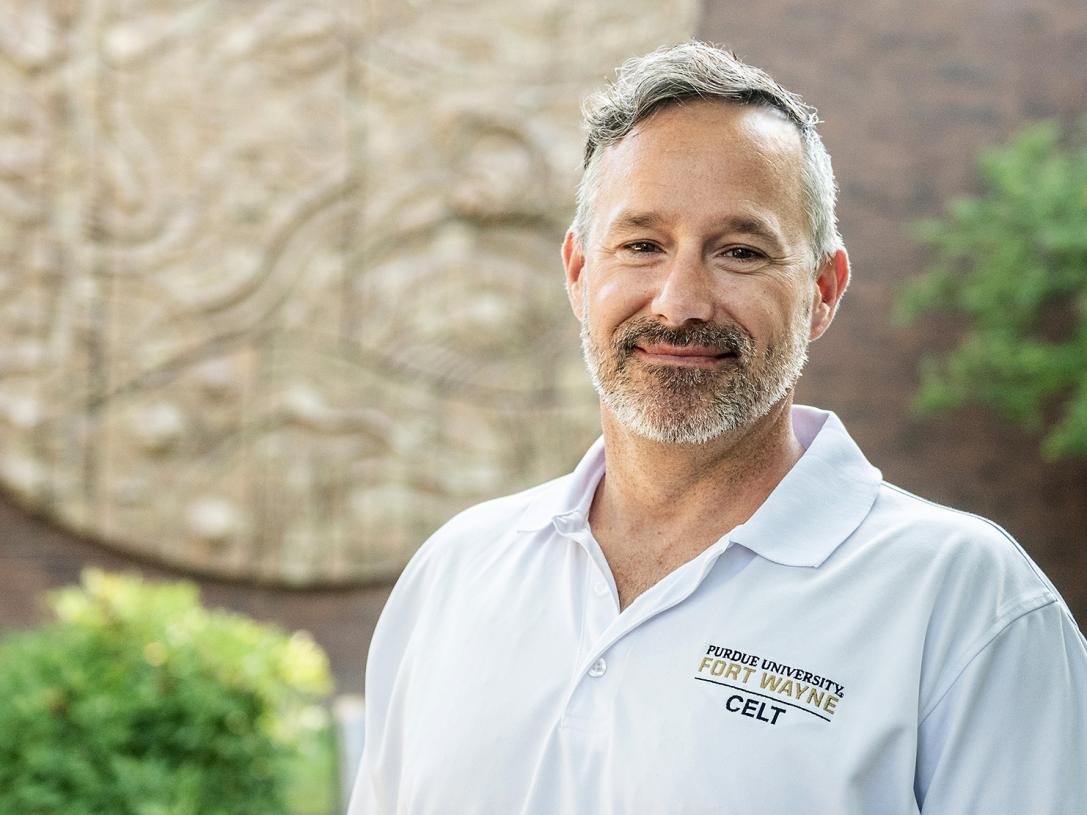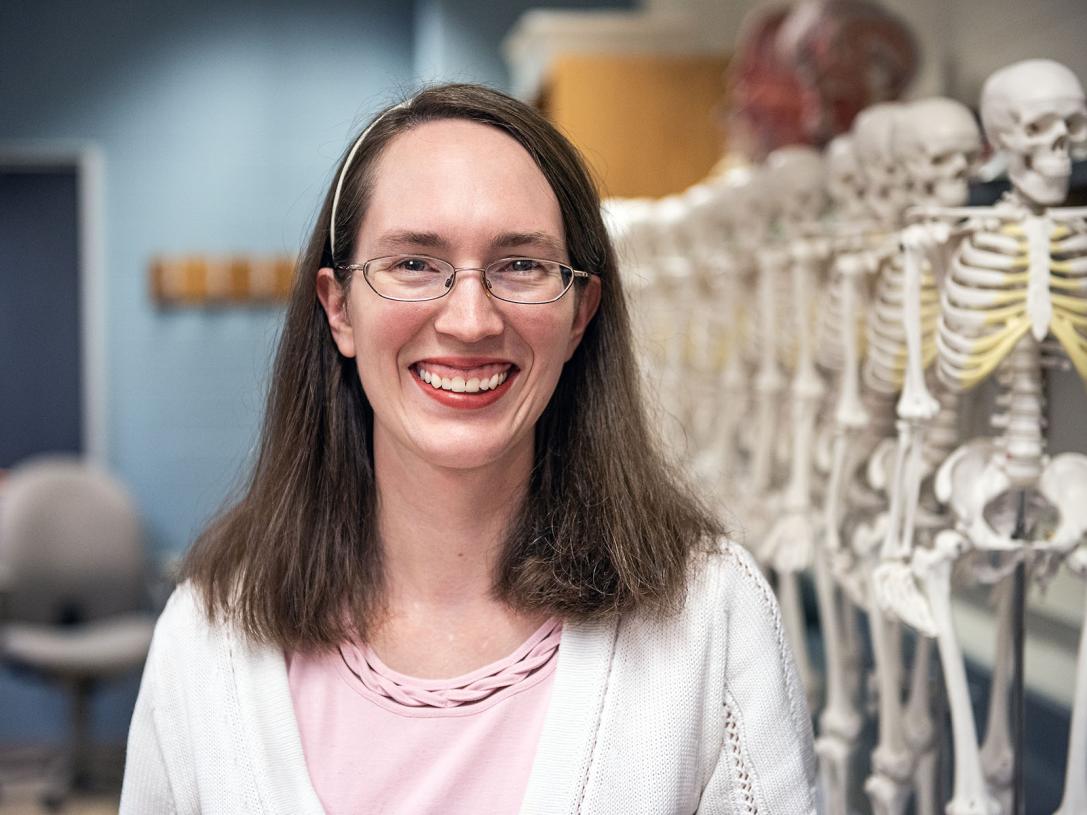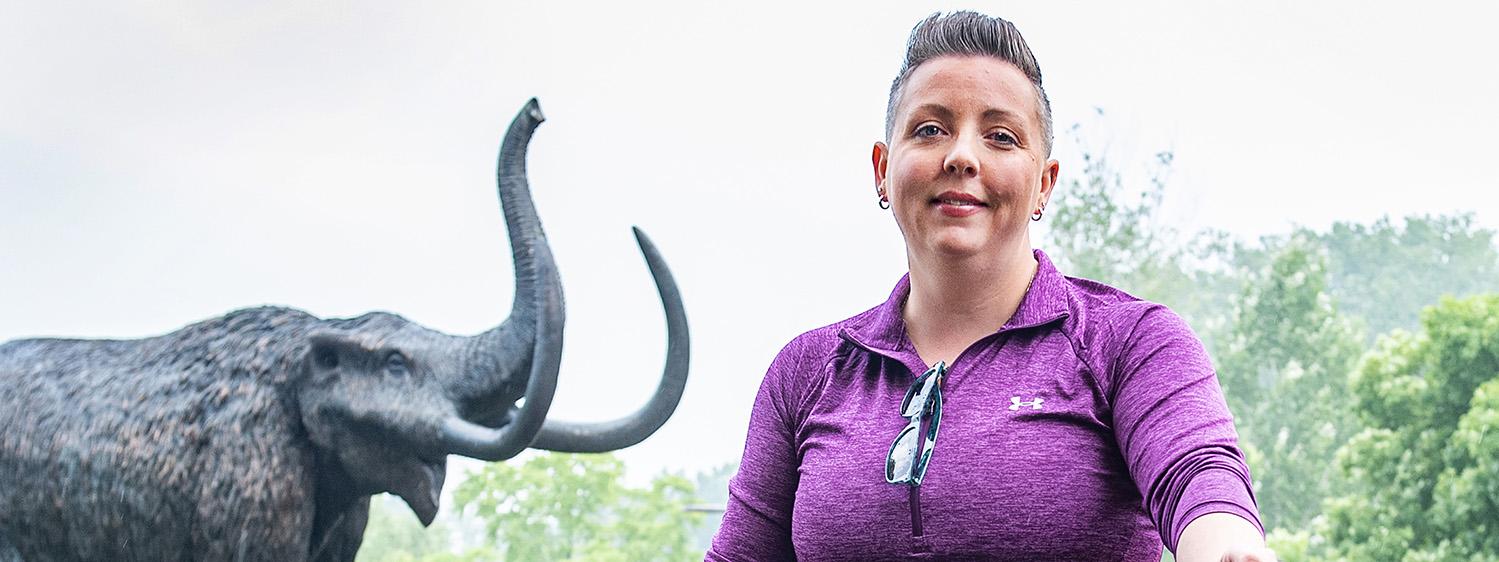
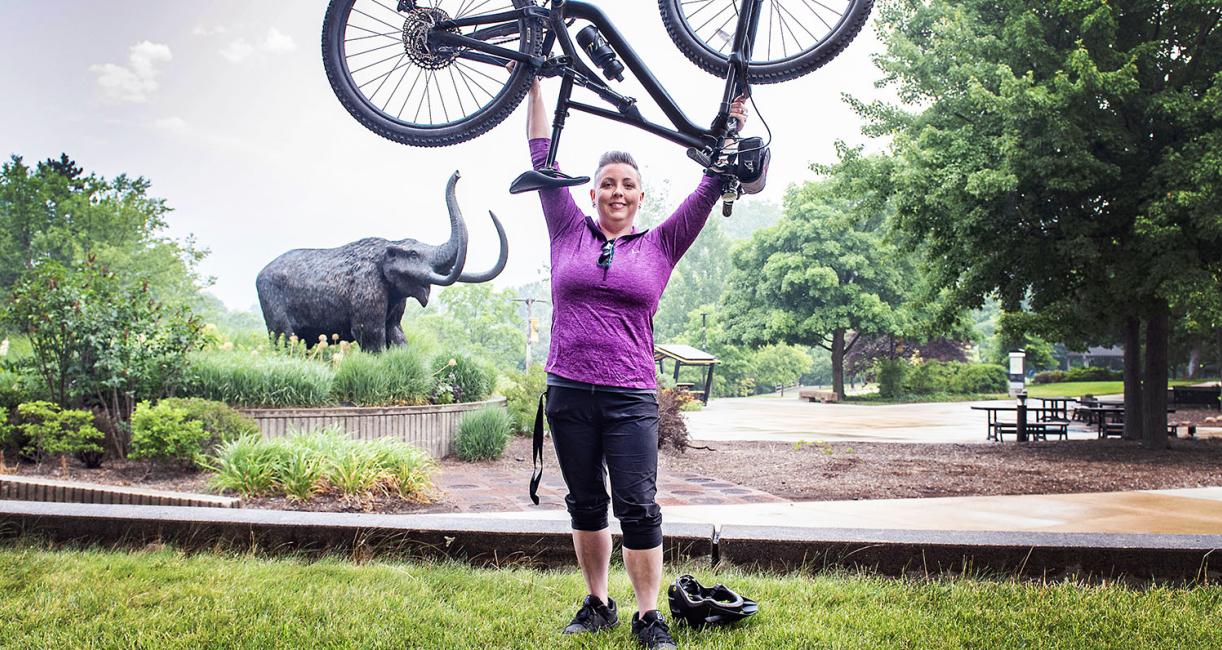
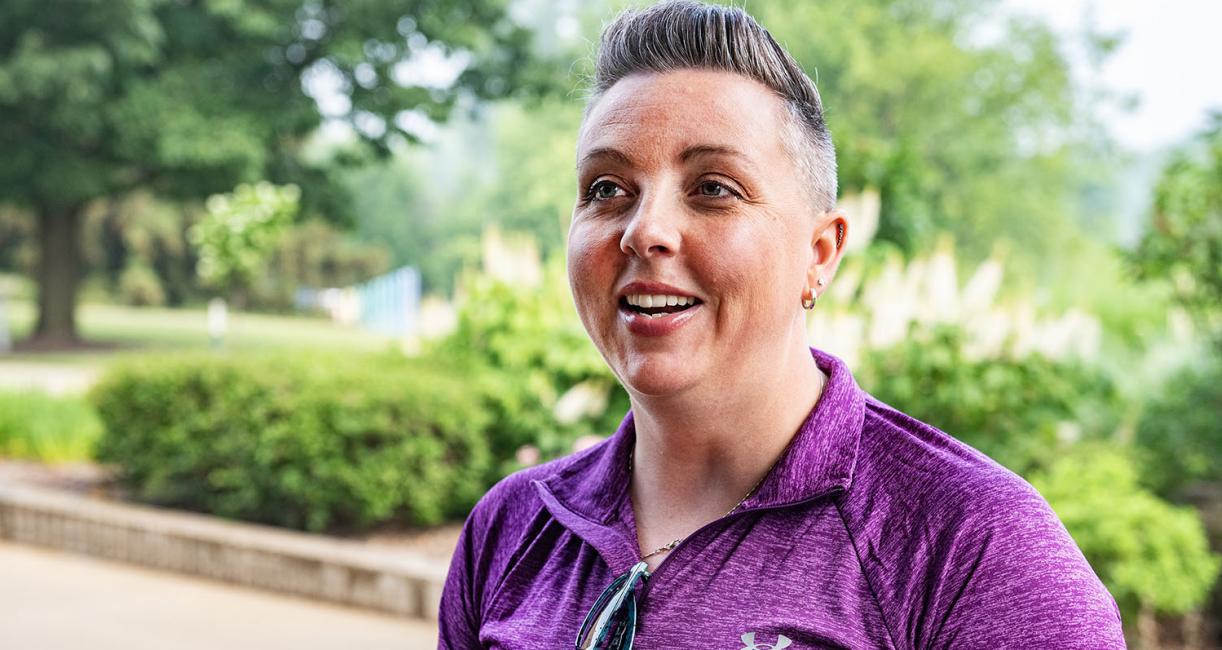
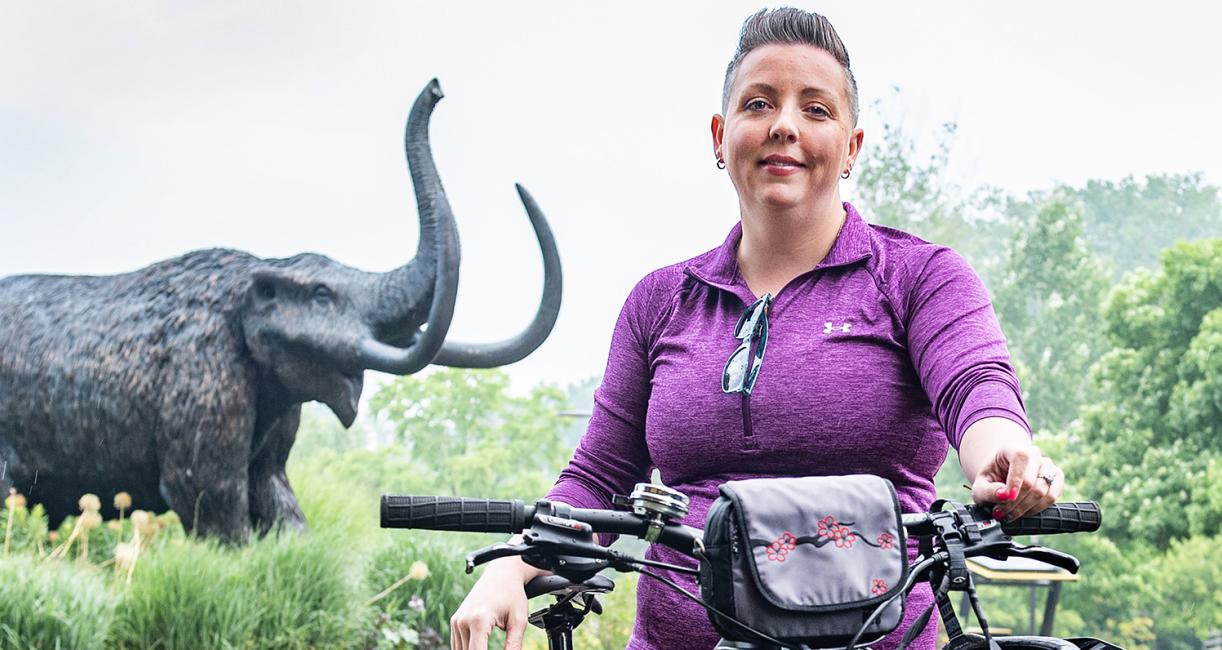
Teri Luce: Mastodon Memories
This summer series explores the campus experiences of current PFW faculty and staff who are also alumni.
By Blake Sebring
July 20, 2023
Teri Luce, B.A. ’07
Administrative Assistant for the Departments of History and Political Science
Luce arrived on campus the fall of 2001, left briefly after graduating with an anthropology degree, and returned as an administrative assistant in 2008. Her job title doesn’t come close to recognizing her importance to the university or its students.
Where are you from and why did you choose to go to school here?
TL: I was born and raised in Fort Wayne and graduated from South Side High School in 2001. I had toured a few different schools, but I ended up coming here because it was affordable and close to family.
What car were you driving at the time?
TL: A blue 1987 Chevy Celebrity. It was not a fancy car. It had lots of dents and rust.
Why did you pick your major?
TL: I started undecided, but after taking some classes, I found anthropology and it opened my mind to the world. I’ve always been interested in people, and I learned a lot. I really got into archaeology.
How did attending school here change your life?
TL: It opened my eyes to a bigger world. I learned a lot as I studied people from all over the world in anthropology and archaeology. I met lots of great friends, got into all kinds of music and movies.
What kind of music where you listening to and what was your favorite artist or band?
TL: I think at the time I listened to a lot of Metallica, The Beatles—and all their solo stuff—The Rolling Stones, and I got into Nora Jones and had her album on repeat. Santana, Lighthouse, Sound Garden. A local friend who I did archaeology with was in the band Left Lane Cruiser. They are a dirty blues, two-man band; real loud and rough and fun.
What was your favorite area of research?
I actually had a National Science Foundation Grant to study if there was a palisades wall in a particular area on a site we were digging. I did a lot of ground penetrating radar surveying, and we did a lot of digging. The site had a wide range of places we could see how that group changed over time and how fortified they became. I made a poster and presented at a conference. Native American archaeology has always intrigued me, probably Central American the most.
Were you a part of any student organizations?
I was part of the Anthropology Club, was president for a while, and was very active planning all the lecture series, meetings, and various social things. I also worked in Student Life and I knew everybody. We also had a club called Animation Underground.
Did you have favorite professors and why?
Paul Provost was probably my favorite. He was an anthropology professor who did ethnographic studies of a particular tribe in Mexico. He had all kinds of interesting tales. Rick Sutter and Larry Kuznar are just very animated and interesting people to listen to, and I liked Chad Thompson.
Why did you come back to the university?
I graduated in 2007, and I wasn’t happy in the hospitality field and I wasn’t getting full-time work. I wanted something more rewarding, and I like the community here and I missed school. It was within six months of me being out I came back.
I am constantly wanting to learn and am a naturally curious person. Being able to talk to faculty and students about current or even historical events, I can stay informed that way. I can attend people’s lectures, which is great.
How has PFW changed for the better?
Now we have more of a normal campus where students stay around, which is nice. To actually get them involved in stuff is a little easier because they are closer.
One of the big things I think here on campus is community, and trying to make the community better. I try to make my office really inviting for students, faculty, and staff, and help in any way I can. Even if it’s not really in my area, I might know where people can go. I think having a relationship with the students is important, and that’s really why I like being here. It might lead into other things school-related, and I want them to know they can come here.
